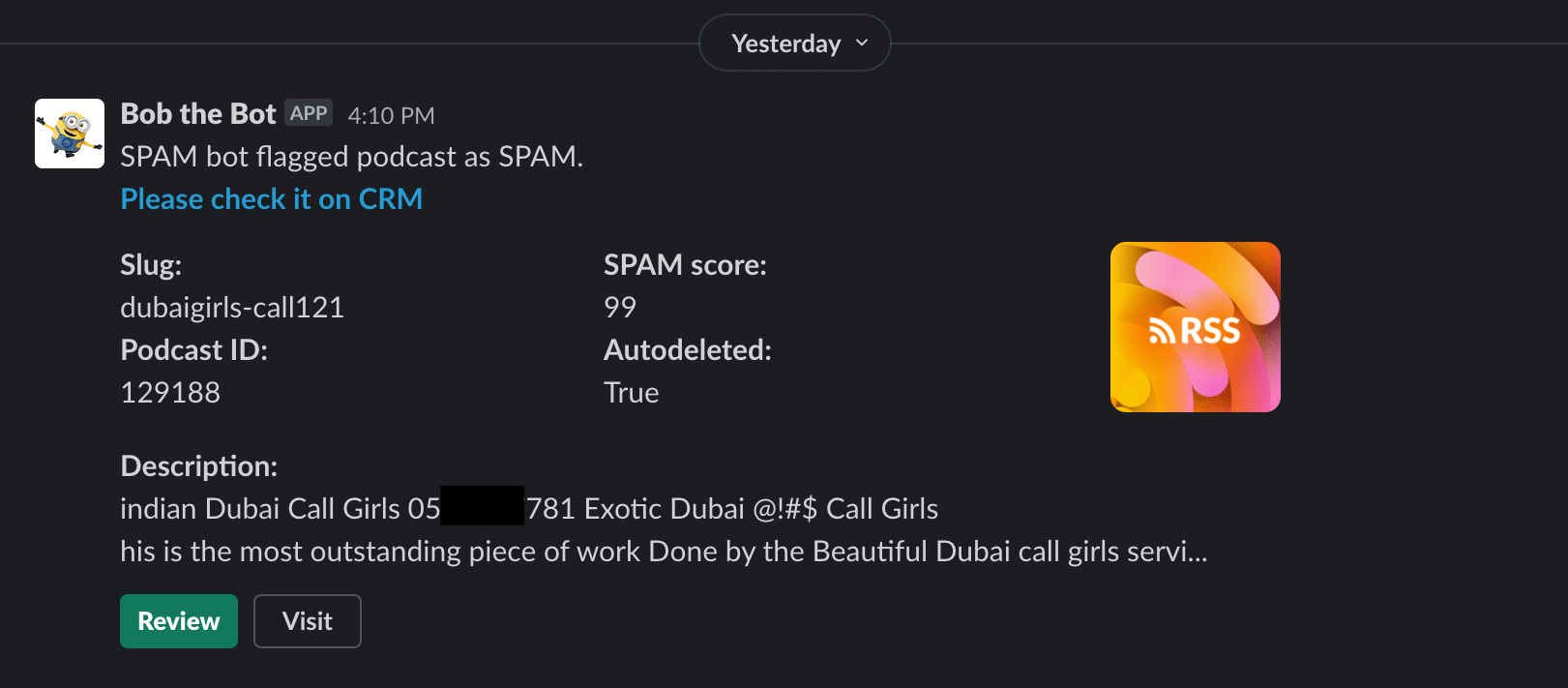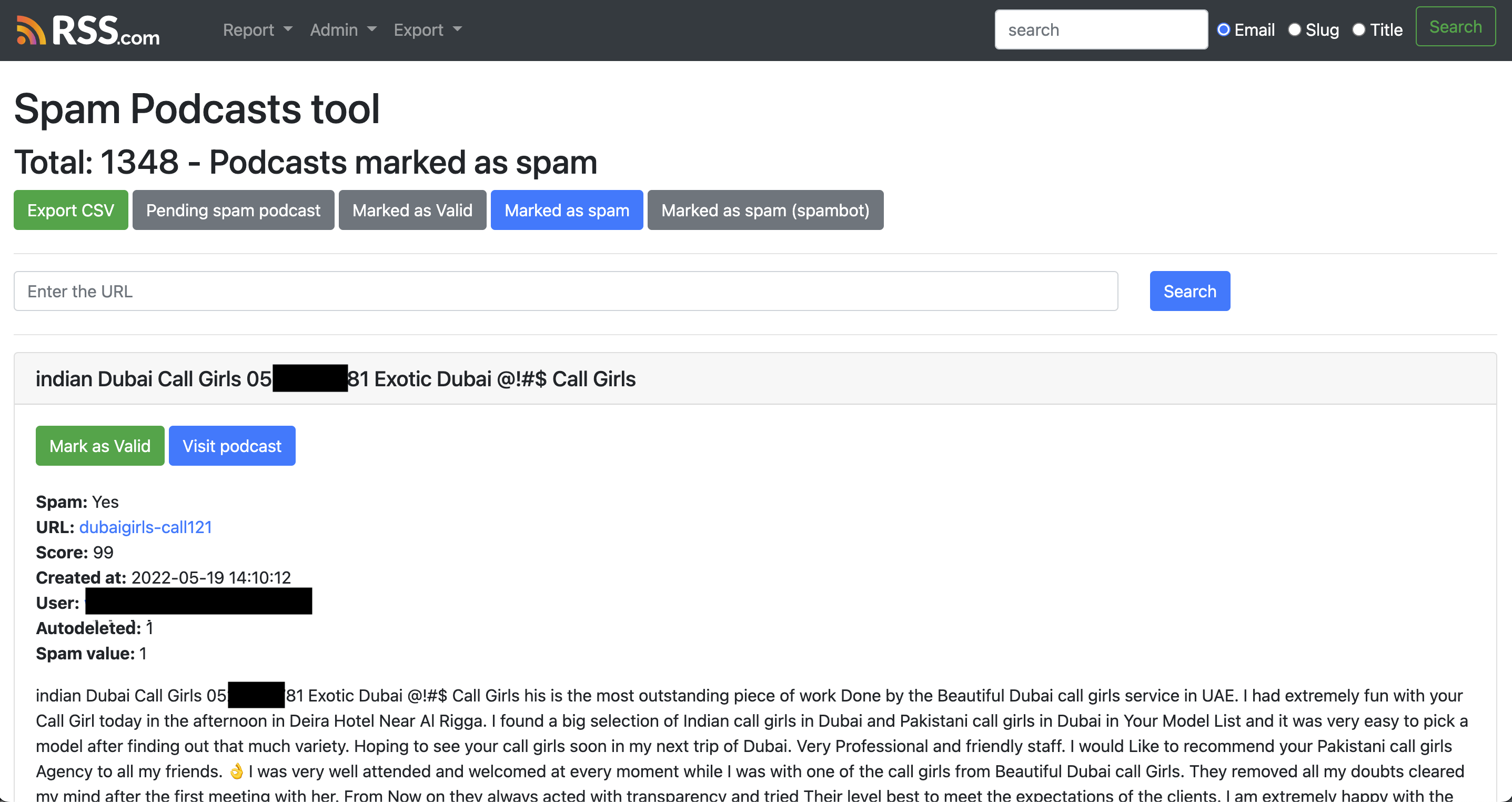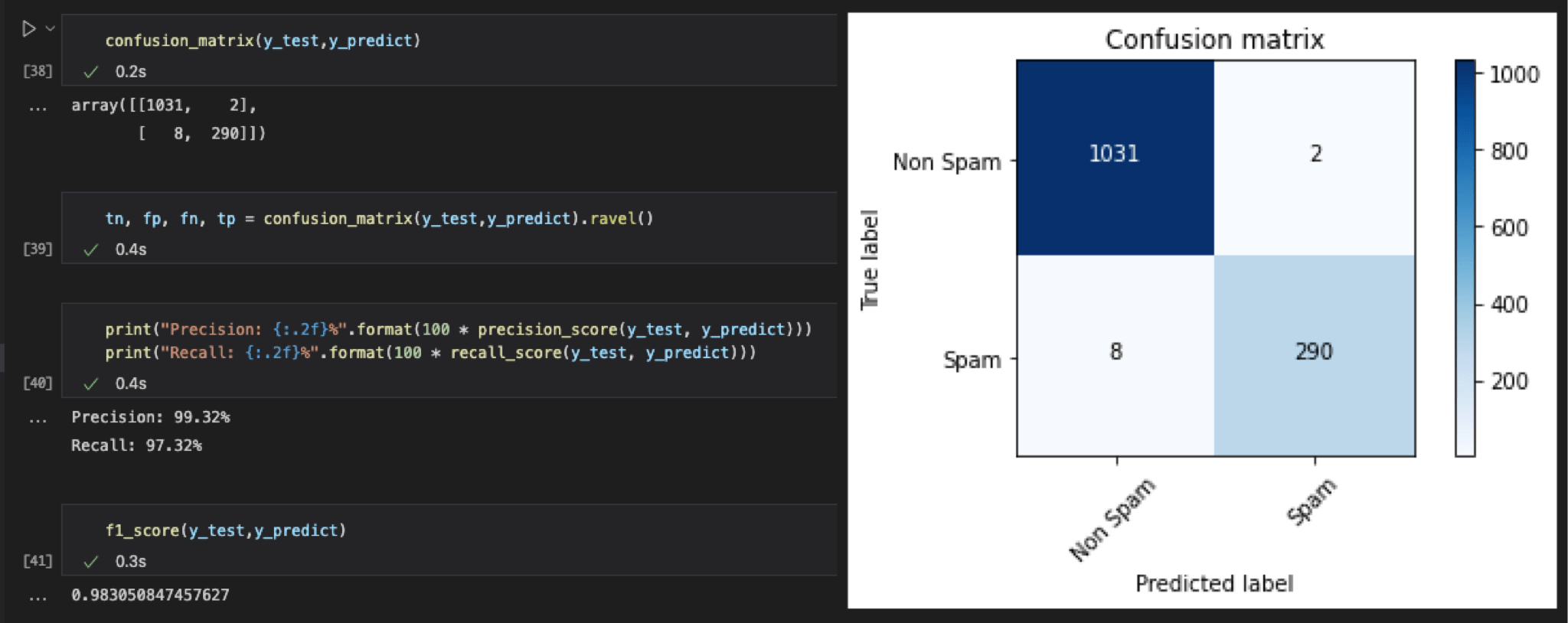Join us in analyzing 3 case studies that show the importance of driving brand search behavior and engagement, and how to do it in months, instead of years.
Maximize your SEO efforts in 2024 with insights on Google’s SGE, algorithm updates, and expert tips to keep your site ahead.
Download this guide and learn how to optimize and manage Google Performance Max campaigns, with expert insights and actionable strategies to ensure your campaigns are effective.
Join us in analyzing 3 case studies that show the importance of driving brand search behavior and engagement, and how to do it in months, instead of years.
Join us in analyzing 3 case studies that show the importance of driving brand search behavior and engagement, and how to do it in months, instead of years.
Join us as we dive into exclusive survey data from industry-leading SEOs, digital marketers, content marketers, and more to highlight the top priorities and challenges that will shape the future of search in 2025.
United States antitrust lawsuit uncovers scheme by Google Search, Chrome and Ads execs to increase ad revenues
United States antitrust lawsuit against Google uncovers emails of executives from Google Search, Chrome and Ads discussing schemes for increasing ad revenue.
There are two documents, one from 2019 that features top Google executives from Search, Chrome and Ads hatching plans for pumping up ad revenues before the end of the quarter. At one point they even discuss the impact on Google’s stock price and their own personal fortunes.
Another document, dating from 2017, acknowledges reluctance of the Search team to do anything that could negatively affect users.
The executives who were a part of the email discussion consisted of top executives, including Ben Gomes, whose career spanned Senior Vice President of Search, News, Google Assistant and Education. He has worked on how Google ranked websites and was responsible for instant search, spelling corrections, among other projects.
The PDF documenting the email discussion appears to contradict Google’s longtime insistence that that the Search Team is firewalled from the Advertising side of the company.
But again, these are top executives having a discussion, not the search team itself, apart from Ben Gomes.
Googlers have made many statements over the years, at search conferences and in Google Hangouts and on Twitter that the search side of Google does not coordinate with the advertising side.
For example, in a May 8, 2015 Google Hangout, Google’s John Mueller explained how the search team is blocked off from the Ads team.
The question he answered was about a rumor that Google makes SEO more difficult in order to make more money from the ads.
Mueller responded:
“This is definitely not true.
So, this is something where we have a very, very strong firewall essentially between the paid side of Google and the organic search side.
And that’s not something that we would kind of connect, where we would say we would make algorithms that make the search results worse so that people go and click on ads more.
…So, it’s something where we’re not artificially trying to make it more complicated or harder or the search results worse so that people click on ads.
…So, that’s something where on the one hand, we really have the strong separation between the two sides.
On the other hand, we really need to keep that upright, so that we can make sure our search results are really as neutral as possible, as high quality as possible and really provide what users want.”
The 2019 email is from a Google Ads executive Jerry Dischler. It was sent to a ChromeOS executive named John Maletis.
Also in on the email discussion is Ben Gomes who worked on the Google search algorithm since the earliest days, and Prabhakar Raghavan, an executive vice president who has been involved in the Search side as well as with Google Ads.
Google Ads executive Dischler wrote:
“The Search team is working together with us to accelerate a launch of a new mobile layout by the end of May that will be very revenue positive (exact numbers still moving), but that still won’t be enough.
Our best shot at making the quarter is if we get an injection of at least [redacted]% , queries ASAP from Chrome.”
He followed those remarks by lamenting how disappointed all the different team members will be should Google’s stock price drop because the advertising side didn’t perform well enough.
Frankly, it’s shocking that anyone involved with Google’s algorithm is in a discussion with the ChromeOS and Advertising teams about ways to artificially increase search queries in order to help meet the advertising side’s performance goals for the quarter.
And as disappointing as that is, it gets even worse.
The executives go on to discuss how not meeting their revenue goals will impact their personal wealth.
Dischler continued:
“I care more about revenue that the average person but think we can all agree that for all of our teams trying to live in high cost areas another $[redacted] in stock price loss will not be great for morale, not to mention the huge impact on our sales team.
In the next paragraph he expresses pride in Google’s “pure approach” and claims he doesn’t want to “poison the culture of any team.”
And with his next breath this is where he starts handing out the poison, saying:
“I don’t want the message to be ‘we’re doing this thing because the Ads team needs revenue.’ That’s a very negative message.
But my question to you is – based on above – what do we think is the best decision for Google overall?
…Are there other ranking tweaks we can push out quickly?”
A high ranking Chrome executive, Anil Sabharwal, responds by affirming they should go ahead with changes to search ranking (ostensibly to benefit Google Ads, which is the context of the entire email).
Tellingly, he worries about “bad press” at the upcoming Google IO event.
Sabharwal responded:
“…we don’t want bad press around IO, let’s roll out #1 and #2 now and get the benefits.
Let’s also start the search ranking experiments asap and roll those out once we get the data.”
Later on in the email chain, Anil Sabharwal questions how far the executives are willing to go in terms of the negative impact to the user experience, long term retention and team motivation.
He then talks about changes to search ranking:
“We are making progress here, and I’m hopeful the search ranking improvements in Omnibox will also be a material increase in SQV, but I understand we need to do more.”
The “improvements” being discussed are a way to increase search queries and presumably ad revenues.
In another part of the email chain Jerry Dischler remarks on the short term gains from reversing “query-driven revenue loss” and references experiments on the Chrome and Search side.
He then remarks on how they need to be more aggressive about raising the advertising revenues.
Dischler writes:
“It’s a decent start but collectively we need to figure out how to do more and this work is urgent because we continue to face these strong headwinds in Q2.”
Anil Sabharwal, the Chrome executive, later discusses the changes to Chrome, specifically the Omnibox changes, that are designed to increase search queries, describing the work of the Chrome team for increasing search queries as “heroic.”
He wrote:
“1…we were able to get launch approval to rollout two changes (entity suggest and tail suggest) that increase queries by [redacted]% and [redacted]% respectively.
2. We are going to immediately start experiments to improve search ranking in the omnibox (more search results and nudging search to the top).”
The changes Google made to Chrome were so bad that the experiments were noticed by commenters on Reddit.
The executive found it humorous that the Redditors thought that the experiment was a “bug.”
Another government exhibit contains a discussion given in 2017 where the Ads side expresses frustration with the wall separating the Ads team from the search team.
The discussion calls attention to talk that the Search side should consider “query quotas.”
The document reveals:
“Ads/Revenues
…the old model of things getting thrown over the wall to them has outlived its usefulness…
There’s talk of suggesting that the Search team consider new goals around query quotas, focusing on monetizable queries, returning towards focusing Search experience on high revenue countries…”
The document outlines the fears of the Search team about metrics that could lead to “unnatural search experiences” from the quest for ad revenue.
So it’s not that the Search team itself was complicit in rigging search in service of more ad revenues.
The second document acknowledges that the Search team itself didn’t want to engage in activities that would negatively impact the users.
Read the entire email document in PDF format.
Read the second exhibit in PDF format that kicks around the idea about “query quotas”
Watch John Mueller discuss the firewall between the search and ads at the 41 minute mark:
I have 25 years hands-on experience in SEO, evolving along with the search engines by keeping up with the latest …
Conquer your day with daily search marketing news.
Join Our Newsletter.
Get your daily dose of search know-how.
In a world ruled by algorithms, SEJ brings timely, relevant information for SEOs, marketers, and entrepreneurs to optimize and grow their businesses — and careers.
Copyright © 2024 Search Engine Journal. All rights reserved. Published by Alpha Brand Media.
Freelancer SEO Services Market Report 2024 – SEO Services Market Size, Share And Trends – openPR
Google’s SEO Starter Guide Updates: Branding In, Keywords Out – Search Engine Journal
Join us in analyzing 3 case studies that show the importance of driving brand search behavior and engagement, and how to do it in months, instead of years.
Maximize your SEO efforts in 2024 with insights on Google’s SGE, algorithm updates, and expert tips to keep your site ahead.
Download this guide and learn how to optimize and manage Google Performance Max campaigns, with expert insights and actionable strategies to ensure your campaigns are effective.
Join us in analyzing 3 case studies that show the importance of driving brand search behavior and engagement, and how to do it in months, instead of years.
Join us in analyzing 3 case studies that show the importance of driving brand search behavior and engagement, and how to do it in months, instead of years.
Join us as we dive into exclusive survey data from industry-leading SEOs, digital marketers, content marketers, and more to highlight the top priorities and challenges that will shape the future of search in 2025.
Google’s Search Relations team plans to update their SEO Starter Guide, focusing on debunking myths and modernizing advice.
In a recent episode of “Search Off the Record,” Google’s Search Relations team provided information about upcoming changes to Google’s SEO Starter Guide.
The team, composed of John Mueller, Lizzie Harvey, and Gary Illyes, says the guide maintains a 91% user satisfaction rating. However, they believe it’s due for an overhaul to streamline outdated advice and better serve its core beginner audience.
These are some of the most notable changes discussed during the podcast.
The team discussed the role of HTML structure in search engine rankings. They explained that proper use of HTML elements such as titles can be helpful for rankings but doesn’t impact them as much as some think.
“Using headings and a good title element and having paragraphs, yeah, sure. It’s all great. But other than that, it’s pretty futile to think about how the page… or how the HTML is structured,” Ilyes mentioned, debunking common misconceptions within the SEO community.
The team discussed the ongoing debate about whether domain names affect SEO.
They recommended prioritizing branding over including keywords when choosing a domain name. Their view was that establishing a memorable brand should take precedence over trying to optimize domain names for search engines.
This advice reflects a trend toward brand-centric domain name selection in SEO strategies.
The team deliberated whether to discuss meta tags like meta keywords in the revised SEO Starter Guide. The team leaned towards excluding this topic to avoid unnecessarily worrying site owners because meta keywords have minimal influence on Google Search rankings.
“I feel very conflicted about documenting anti patterns because we perhaps also give ideas about like new worries for site owners to think about,” Gary explained, highlighting their cautious approach.
Ultimately, the decision was made to focus the guide on optimizing factors with a more significant impact.
Related: The Complete Guide to On-Page SEO
The conversation explored ways for the team to correct common SEO misconceptions, specifically the idea that utilizing Google products improves search rankings.
The team agreed that the SEO Starter Guide should address these inaccurate beliefs to prevent the spread of misinformation.
As the Google Search Relations team prepares to release the updated SEO Starter Guide, this recent podcast episode has given the SEO community a sneak peek at the upcoming changes.
They want to simplify and modernize the guide and debunk common SEO myths.
The goal is to provide helpful, practical SEO advice for people who are just starting and experienced professionals.
For more on the updates to Google’s SEO Starter Guide, see:
Featured Image: Sadi-Santos/Shutterstock
Matt G. Southern, Senior News Writer, has been with Search Engine Journal since 2013. With a bachelor’s degree in communications, …
Conquer your day with daily search marketing news.
Join Our Newsletter.
Get your daily dose of search know-how.
In a world ruled by algorithms, SEJ brings timely, relevant information for SEOs, marketers, and entrepreneurs to optimize and grow their businesses — and careers.
Copyright © 2024 Search Engine Journal. All rights reserved. Published by Alpha Brand Media.
Google Podcasts Manager shows you search impressions and clicks from Google Search – Search Engine Land
sel logo
Search Engine Land » Platforms » Google » Google Assistant »
Chat with SearchBot
SearchBot:
Google announced a new feature for Podcasters named Google Podcast Manager. Podcast Manager allows podcasters to see how well their podcasts are performing in Google Search.
What Podcast Manager does. Google Podcast Manager enables “podcasters can see impressions and clicks for Google Podcasts results that appear in Search, as well as top discovered episodes and search terms that led to their podcast,” the company said.
Related: Google adds playable podcasts directly in the search results
It looks like this is a version of the search performance report in Google Search Console for podcasts.
Here is what Google says this provides:
What it looks like. I added my weekly video podcast to the Google Podcast Manager. It currently does not have any data but this is what I see right now:
How to Optimize Podcasts for Google. Google posted these details on how to optimize for Podcasts on Google. You can learn more about this over here.
Where to sign up. You can sign up for Google Podcast Manager at https://podcastsmanager.google.com/about
Why we care. Podcasts are super popular now and show up often in Google Search. If you are running a podcast, you will probably want to uncover how it performs directly in Google Search and this tool does that for you.
Related stories
New on Search Engine Land
About the author
Related topics
Get the newsletter search marketers rely on.
See terms.
Learn actionable search marketing tactics that can help you drive more traffic, leads, and revenue.
Online Nov. 13-14: SMX Next
Available on-demand: SMX Advanced
Available on-demand: SMX Master Classes
Discover time-saving technologies and actionable tactics that can help you overcome crucial marketing challenges.
April 15-17, 2020: San Jose
Get More Out of Your Webinars: Strategies for 24/7 Engagement
How Content is Critical to a Winning Ecommerce Strategy
ABM and AI for Marketers: Priority Use Cases for 2025
Enterprise SEO Platforms: A Marketer’s Guide
Email Marketing Platforms: A Marketer’s Guide
Customer Data Platforms: A Marketer’s Guide
The Modern Marketing Data Stack for 2025
Meet your new AI-powered marketing assistant!
Get the newsletter search marketers rely on.
Topics
Our events
About
Follow us
© 2024 Search Engine Land is a Trademark of Semrush Inc.
Third Door Media, Inc. is a publisher and marketing solutions provider incorporated in Delaware, USA, with an address 88 Schoolhouse Road, P.O. Box 3103, Edgartown, MA 02539. Third Door Media operates business-to-business media properties and produces events, including SMX. It is the publisher of Search Engine Land, the leading digital publication covering the latest search engine optimization (SEO) and pay-per-click (PPC) marketing news, trends and advice.
Fighting podcast spam with RSS.com – Podnews
This article is at least a year old
Almost every podcast host offers a free plan – whether it’s a permanent, free account, or a starter month free.
With those free plans come a bunch of new shows. Some people try out podcasting for the first time: but some people take advantage of free plans to promote the oldest profession on the planet: the sex trade.
Disappointingly, sex workers aren’t suddenly producing deftly-produced audio fiction shows, true crime series, or branded content; instead, it’s as simple as using podcasting to chase SEO and better rankings in Google. (We’ve changed the telephone numbers in the above image!)
Alberto Betella from RSS.com takes up the story for Podnews:
We offer a freemium model; users can sign up and upload their first episode without a credit card. But we started to notice an increasing number of podcasts that were created only with the goal of promoting dubious and illegal services.
These podcasts were not created by bots, whose patterns are easier to automatically identify, but by real users: mainly located in India and Pakistan in our case, who manually created hundreds of shows and uploaded hundreds of fake episodes containing random noise, or random music extracts.
This behavior is harder to identify with simple rules based on IP and user agents; and we quickly realized that the goal of these spammers was twofold:
The first was simple to solve. For all the shows that only have one short episode and don’t have an active subscription to our service (i.e. those shows that are not “verified” or don’t pass our quality filters), we added the rel="ugc" attribute, and similar, to the webpage meta tags and to all the hyperlinks, following Google’s advice. This is the best deterrent for any spammer. If the webpage they create on our platform is not indexed by Google and their links are not contributing to increase any ranking, there is no point in creating these web pages.
The issue around submissions to other directories was more complex instead since spammers were submitting their spam shows, either manually or via our API integrations, to major podcast directories. If a spam podcast passes the filters of a podcast directory, then they can potentially earn visibility in search results.
On a couple of occasions, a major directory reached out to us telling us that dozens of spam podcasts we hosted were submitted to them in the short time span of a few hours. We had two options:
a. “Throw humans at the problem”, hire 1 or 2 extra people to counteract this misbehavior (perhaps also implementing a moderation queue for newly created podcasts)
b. build tech to address and mitigate the problem
We chose option B because it works at scale, it doesn’t need food and drinks, and because it’s a lot more fun! A few people in our team, in fact, have a strong AI/ML background and it doesn’t happen very often to have the opportunity to leverage this skill set in the podcasting space.
We learnt that spammers in podcasting do not rely on the episode’s audio files to be actually listened to, but they rather aim at discoverability through the appearance of titles and descriptions in search results of search engines and podcast directories.
For this reason, we focused our spam detection mainly on text and we used state-of-the-art Natural Language Processing (NLP) techniques.
First, we manually flagged the spam podcasts in our database and then we used this corpus to train our ML model, normalize the lexicon and extract relevant features such as TF-IDF, among others. Once the ML model was ready, we built an ad hoc API (aka “SpamBot”) that ingested all the new shows and all the changes in existing shows (e.g. new episodes, edited episodes), channelled them through our ML model and returned in real-time a SPAM score.
Based on this spam score our bot can:
In the case a human review is recommended, the team can take action directly via Slack by flagging it directly as spam with the spam button.
In addition, our team can review spam podcasts and also flag false positives (if any) via our CRM, another internal tool that we built in house to control all the aspects of our product:
Flagging false positives via our CRM was very important at the beginning of this project to improve the accuracy of our solution.
While the accuracy of the very first spam model was not bad, over the first couple of months thanks to this semi-supervised learning approach, we were able to improve and re-train our ML model and achieve admirable results. Our model today is capable of detecting spam podcasts in a few milliseconds with high precision (99.32%, F1=.98, p < .05) as demonstrated in our confusion matrix analysis:
Effectively, our current model reduced the need for human intervention to almost zero, with very pleasing consequences for the safety of our community.
To make the model stronger, we added other parameters, including the presence of a custom cover art vs our default cover art.
Our approach is solid enough even in the case that spammers will start to use the audio files to promote spam products because audio can be transcribed into text and then fed into the same ML models we use for the description.
This is one of the reasons why in the next couple of months we’ll launch free transcripts for all RSS.com users: important for accessibility but also great for spam detection!
Fun fact: one caveat of this approach is that, because NLP models are trained using a given corpus, the languages less present in these corpora may result in false positives. This happened to us with French. Because we do not host many shows in French, it so happened that shows in French we hosted were flagged as spam (false positives) with significantly higher frequency than other languages such as English or Spanish. What we did to solve this challenge was compile a simple dataset with the top ~60 podcasts in France (title and description) and feed it as a training corpus to our ML model… et voilà! Our spambot learned French and false positives in that language were drastically reduced.
We cannot share our current ML model as open source because it is part of the unique value proposition of our company. However, we have described the methods and provided actionable recommendations for anyone that wants to build something similar. Hopefully, this is our small contribution to keep podcasting spam free!
You can get started for free with RSS.com without a credit card; but not you, suspiciously pretty-looking Russian blonde in Dubai who just wants to spend some quality private time with a new friend.





















































































Readers and supporters
Google On 404 Errors And Ranking Drops – Search Engine Journal
Join us in analyzing 3 case studies that show the importance of driving brand search behavior and engagement, and how to do it in months, instead of years.
Maximize your SEO efforts in 2024 with insights on Google’s SGE, algorithm updates, and expert tips to keep your site ahead.
Download this guide and learn how to optimize and manage Google Performance Max campaigns, with expert insights and actionable strategies to ensure your campaigns are effective.
Join us in analyzing 3 case studies that show the importance of driving brand search behavior and engagement, and how to do it in months, instead of years.
Join us in analyzing 3 case studies that show the importance of driving brand search behavior and engagement, and how to do it in months, instead of years.
Join us as we dive into exclusive survey data from industry-leading SEOs, digital marketers, content marketers, and more to highlight the top priorities and challenges that will shape the future of search in 2025.
Google’s Gary Illyes answered a question about a ranking drop that appeared to be connected to 404 page not found errors
In a Google Office Hours podcast, Google’s Gary Illyes answered a question about 404 Page Not Found errors that coincided with a drop in rankings.
There are probably many reasons for 404 errors created by bots. One reason for those error responses could be that they are originating from automated scanners that are looking for files or folders that are typical for specific vulnerable plugins or themes.
Checking the the IP address and user agent of the bot that’s causing the 404 server error responses can also yield clues if those 404 responses are from automated scanning bots. If the IP address indicates it’s originating from a web host, or a Russian or Chinese IP address then it’s probably a hacker. If the user agent is an out of date version of Chrome or Firefox then that’s probably a hacker’s bot, too. That’s just one reason out of many.
The person asking the question correlated a drop in rankings with 404 Page Not Found server responses.
This is the question that was asked:
“False 404 URLs hitting my website from external source, could this be related to ranking drop? What can I do to fix it?”
Google’s Gary Illyes responded:
“Fake 404s that Googlebot might’ve crawled cannot be reasonably attributed to a ranking drop. It’s normal to have any number of 404s on a site and you don’t have to fix them, though if you see in your analytics software that a larger number of actual users are also coming through those 404 URLs, I would personally try to convert them somehow by, for example, showing them some relevant content instead.”
Gary said that 404s are normal and unlikely to cause a drop in search rankings. It’s true that 404 errors are a common occurrence. In general that’s okay and most of the time there’s no need to fix anything.
See also: The Best 404 Pages: 40 Examples You Need To See
There are other cases where 404s are created by real people who are following a link from somewhere and getting a Page Not Found response. This is easy to diagnose by checking if the URL the site visitors are trying to reach closely resembles an actual URL. That’s an indication that someone misspelled a URL and the way to fix that is by creating a redirect from the misspelled URL to the correct one.
See also: 404 vs. Soft 404 Errors: What’s The Difference & How To Fix Both
Something that Gary didn’t mention but is worth mentioning is that there may be a small possibility that a bot did find a vulnerability and the 404s were caused by a scanner that was scanning for vulnerabilities before eventually finding one.
One way to check for that is to use phpMyAdmin, a server app, to view your database tables in the section for users and see if there’s an unrecognized user.
Another way, if the site is hosted on WordPress, is to use a security plugin to scan the site to see if it’s using a vulnerable theme or plugin.
Jetpack Protect is a free vulnerability scanner that’s created by the developers at Automattic. It won’t fix a vulnerability but it will warn a user if it finds plugin or theme related vulnerabilities. The paid premium version offers more protection.
Other trustworthy WordPress security plugins are Sucuri and Wordfence, both of which do different things and are available in free and premium versions.
But if that’s not the case then the ranking drops are pure coincidence and the real reasons lie elswhere.
Listen to the question and answer at 12:27 minute mark of the Office Hours podcast:
Featured Image by Shutterstock/Asier Romero
I have 25 years hands-on experience in SEO, evolving along with the search engines by keeping up with the latest …
Conquer your day with daily search marketing news.
Join Our Newsletter.
Get your daily dose of search know-how.
In a world ruled by algorithms, SEJ brings timely, relevant information for SEOs, marketers, and entrepreneurs to optimize and grow their businesses — and careers.
Copyright © 2024 Search Engine Journal. All rights reserved. Published by Alpha Brand Media.





